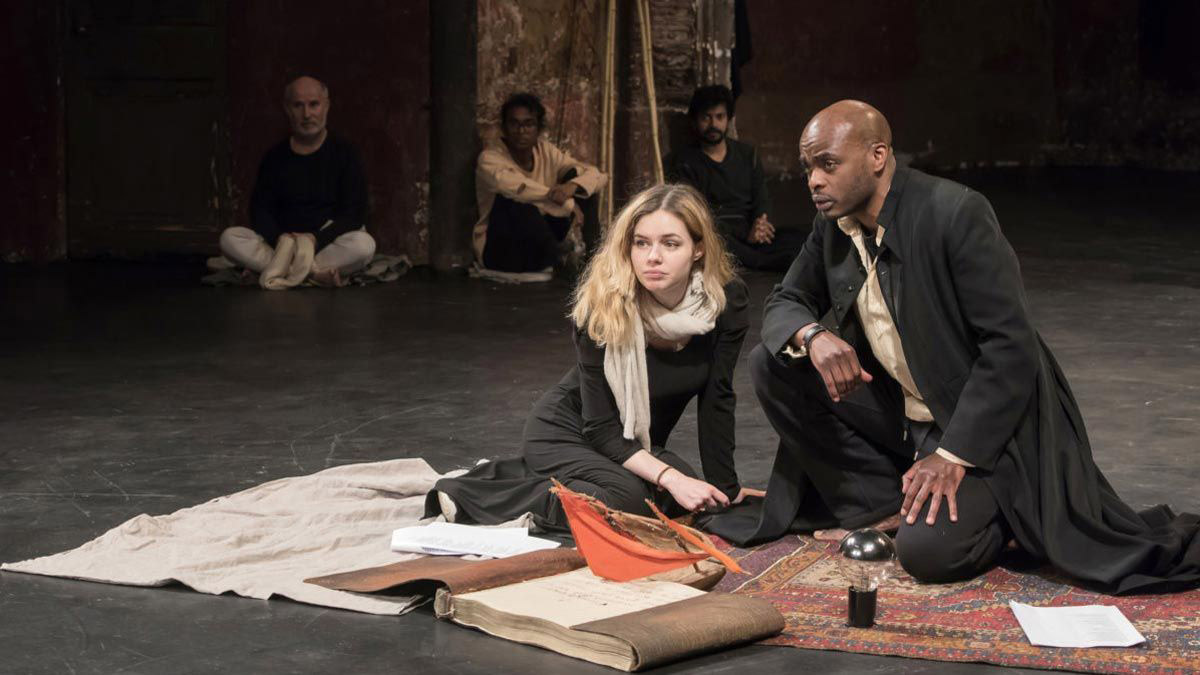

Just a few months ago his production of The Tempest appeared on Italian stages, revealing new levels of meaning through a process of subtraction, to finally get to ‘free’ one of Shakespeare’s most iconic works from stale interpretations. The world of contemporary theater joines in a choral farewell to a theatre visionary.
[This article was published on Venezia News 260/261, February-March, 2022]
Famously interpreted as a farewell to the stage on Shakespeare’s part, the Tempest is the summa of the Bard’s genius, an amazing whirlwind of magic, love, guilt, atonement, loyalty, betrayal, good and evil, human passion, life, the destructive power of nature, and the impotence of the human condition before it. Prospero, the rightful Duke of Milan, and his daughter Miranda live twelve years in exile in a remote island, where the embodiment of the spirits of Earth and Air – named Caliban and Ariel – also live, and will be turned into servants by Prospero. Thanks to magic, Prospero will cause a storm and drive the throne’s usurper, his brother Antonio, to the island. The story ends up with power being reinstated to the rightful Duke. Even though the Tempest is one of Shakespeare’s most popular works, it is still “an enigma” in the opinion of a scholar who has devoted his life to Shakespeare. At age 96, Peter Brook is still at work on the play, together with his longtime aide, French playwright Marie-Hélène Estienne.

This new production, Tempest Project, will be on stage at Goldoni Theatre on February 10 to 13, with a declared goal to separate the play (part of Shakespeare’s romance cycle) from clichés and prevent the audience’s to resort to a commonplace political interpretation, a story on colonialism, power, and authority. By limiting the play to a one-way interpretation, says Brook, “we reject the notion that what ultimately takes us to the word free is about freedom in all its meanings and implications”. To set the Tempest free, the director strips the stage down to few elements (a curtain, benches, and some wooden props), takes light away, and brings silence in. Casting also played an essential role: Prospero, the central figure of the play, will be interpreted by Ery Nzaramba, an African-born actor who worked extensively in England. According to Brook, a western actor would portray a more detached attitude to the hidden, spiritual world of the play compared to an actor born in a region where the notions of invisibility, magic, and witchcraft are perceived as more real and natural. All interpreters are of different nationalities and speak French (the show will be captioned) and maybe precisely the choice to replace the English language – whose musicality is, for Shakespeare, rich in meaning – with such a different language is, in its alienation effect, Brook’s most daring innovation: a choice that will bring about some sort of semantic shock, a resetting of perception that readies the audience to understand new and different meanings.